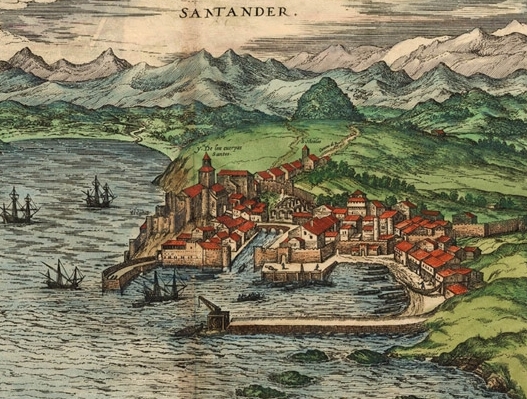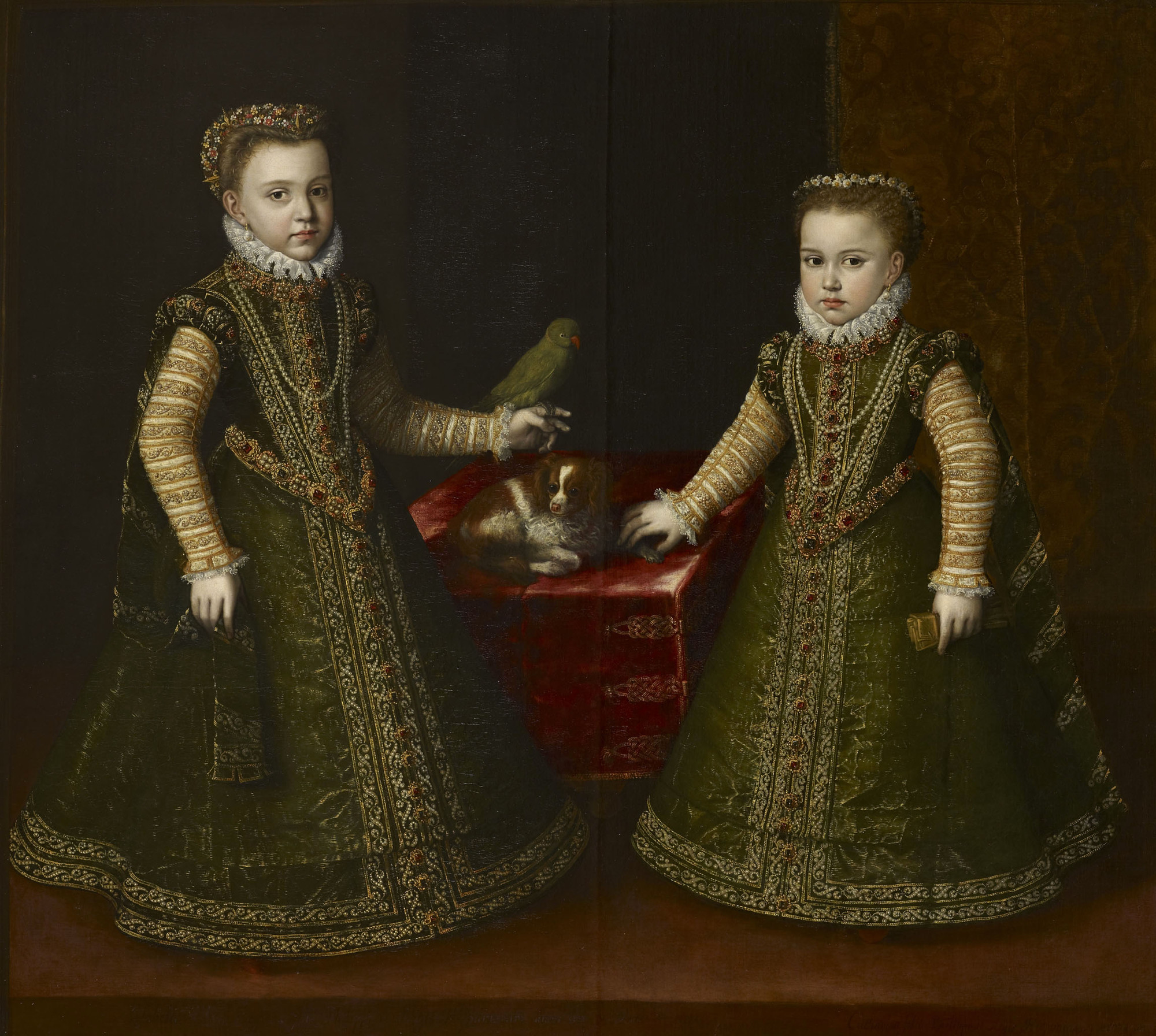|
José Agustín De Lecubarri
José Agustín de Lecubarri y Gorostiza, Order of the Bath, KB (25 June 1802 – 6 January 1874), was a Spanish diplomat and Spanish Navy, naval officer. His significant diplomatic achievements during the First Carlist War earned him the Order of Isabella the Catholic, Grand Cross of the Order of Isabella the Catholic, as well as the Order of Charles III. Early years Lecubarri was born in London into an old Spanish Hidalgo (nobility), hidalgo House of Lecubarri, lineage, son of Hussar cavalry officer Manuel de Lecubarri y Uraga and Manuela Gorostiza y Egusqueaguirre. He returned to Spain briefly following his birth to be baptised through the Catholic Church 2 August 1802, at the Church of Saint Vincent of Saragossa, Saint Vincent near Bilbao. His military career began on 4 September 1824 as Midshipman, rising to Ensign (rank), Frigate Ensign in June 1825 aboard the frigate ''Aretusa'', thereafter promoted to captain of said frigate in January 1828. Such actions as captain e ... [...More Info...] [...Related Items...] OR: [Wikipedia] [Google] [Baidu] |
Santander, Spain
Santander () is the capital of the autonomous community and historical region of Cantabria situated on the north coast of Spain. It is a port city located east of Gijón and west of Bilbao with a population of 172,000 (2017). It is believed to have been a port since ancient times, due to its favorable location, and is documented as far back as the 11th century. Much of the medieval city was lost in the Great Fire of 1941. Today, its remaining old town, beach and other attractions are popular with tourists and other visitors and its economy is mainly service based. The port is still very active and a regular ferry service operates to the United Kingdom. Fish and seafood dominate the local cuisine. Santander notably houses the headquarters of multinational bank Banco Santander, which was founded there. The city has a mild climate typical of the Spanish northern coastline with frequent rainfall and stable temperatures. Cold snaps and heat waves are very rare. History Origins, ... [...More Info...] [...Related Items...] OR: [Wikipedia] [Google] [Baidu] |
Carlist Wars
The Carlist Wars () were a series of civil wars that took place in Spain during the 19th century. The contenders fought over claims to the throne, although some political differences also existed. Several times during the period from 1833 to 1876 the Carlists — followers of Don Carlos (1788–1855), an infante, and of his descendants — rallied to the cry of "God, Country, and King" and fought for the cause of Spanish tradition (Legitimism and Catholicism) against liberalism, and later the republicanism, of the Spanish governments of the day. The Carlist Wars had a strong regional component ( Basque region, Catalonia, etc.), given that the new order called into question region–specific law arrangements and customs kept for centuries. When King Ferdinand VII of Spain died in 1833, his widow, Queen Maria Cristina, became regent on behalf of their two-year-old daughter Queen Isabella II. The country splintered into two factions known as the Cristinos (or Isabelinos) and t ... [...More Info...] [...Related Items...] OR: [Wikipedia] [Google] [Baidu] |
House Of Hanover
The House of Hanover (german: Haus Hannover), whose members are known as Hanoverians, is a European royal house of German origin that ruled Hanover, Great Britain, and Ireland at various times during the 17th to 20th centuries. The house originated in 1635 as a cadet branch of the House of Brunswick-Lüneburg, growing in prestige until Hanover became an Electorate in 1692. George I became the first Hanoverian monarch of Great Britain and Ireland in 1714. At Queen Victoria's death in 1901, the throne of the United Kingdom passed to her eldest son Edward VII, a member of the House of Saxe-Coburg and Gotha. The last reigning members of the House lost the Duchy of Brunswick in 1918 when Germany became a republic. The formal name of the house was the House of Brunswick-Lüneburg, Hanover line. The senior line of Brunswick-Lüneburg, which ruled Brunswick-Wolfenbüttel, became extinct in 1884. The House of Hanover is now the only surviving branch of the House of Welf, which is t ... [...More Info...] [...Related Items...] OR: [Wikipedia] [Google] [Baidu] |
Cross Of Naval Merit (Spain)
The Cross of Naval Merit ( es, Cruces del Mérito Naval) is a Spanish military award for gallantry or merit in war or peace. Awarded to members of the Spanish Naval Forces, Guardia Civil or civilians. History and Attribution Established on 3 August 1866 by Queen Isabella II as the Order of Naval Merit ( es, Orden del Mérito Naval) and amended many times (in 1918, 1926, 1931, 1938, 1942, 1976, 1995, 2003 and 2007). During the Spanish Civil War it was recognized by both sides of the conflict. Awarded originally in four classes, nowadays it lost the rank of an order of merit and the classes were reduced to two and the number of categories extended to four. According to the current regulations the decoration is conferred in the following classes: * Grand Cross - to generals, admirals or civilian personnel of equivalent rank; * Cross - to other officers, non-commissioned ranks or equivalent civilian personnel. The categories are as follows: * with Red Decoration (''con distint ... [...More Info...] [...Related Items...] OR: [Wikipedia] [Google] [Baidu] |
House Of Bourbon
The House of Bourbon (, also ; ) is a European dynasty of French origin, a branch of the Capetian dynasty, the royal House of France. Bourbon kings first ruled France and Navarre in the 16th century. By the 18th century, members of the Spanish Bourbon dynasty held thrones in Spain, Naples, Sicily, and Parma. Spain and Luxembourg have monarchs of the House of Bourbon. The royal Bourbons originated in 1272, when the youngest son of King Louis IX married the heiress of the lordship of Bourbon. Anselme, Père. ‘'Histoire de la Maison Royale de France'’, tome 4. Editions du Palais-Royal, 1967, Paris. pp. 144–146, 151–153, 175, 178, 180, 185, 187–189, 191, 295–298, 318–319, 322–329. (French). The house continued for three centuries as a cadet branch, serving as nobles under the Direct Capetian and Valois kings. The senior line of the House of Bourbon became extinct in the male line in 1527 with the death of Charles III, Duke of Bourbon. This made the junior Bour ... [...More Info...] [...Related Items...] OR: [Wikipedia] [Google] [Baidu] |
Duke Of Osuna
Duke of Osuna is a Spanish noble title that was first awarded in 1562 by King Philip II of Spain to Pedro Girón de la Cueva, (Osuna, Seville, 29 July 1537 – 1590). Pedro was also Viceroy of Naples, (1582–1586), Ambassador in Portugal and 5th Count of Ureña. The fortunes of the town of Osuna started to rise in the mid-15th century. At that time, Osuna was ruled by Pedro Girón Acuña Pacheco, the younger brother of Juan Pacheco. His son Alfonso Téllez-Girón de las Casas was elevated to Count of Ureña in 1464 by King Enrique IV of Castile. The dynasty's influence increased, obtaining the title of Duke of Osuna in 1562. Osuna became the Andalusian capital of the domains of the Téllez-Girón family, who carried the ducal title. Some of the most notable members of the House of Osuna were Pedro Téllez-Girón, 3rd Duke of Osuna, who was a general and viceroy of Naples. He became known to history as the "Great Duke of Osuna". Another celebrated member was Pedro Téllez- ... [...More Info...] [...Related Items...] OR: [Wikipedia] [Google] [Baidu] |
Carlos María Isidro De Borbón
Carlos may refer to: Places ;Canada * Carlos, Alberta, a locality ;United States * Carlos, Indiana, an unincorporated community * Carlos, Maryland, a place in Allegany County * Carlos, Minnesota, a small city * Carlos, West Virginia ;Elsewhere * Carlos (crater), Montes Apenninus, LQ12, Moon; a lunar crater near Mons Hadley People * Carlos (given name), including a list of name holders * Carlos (surname), including a list of name holders Sportspeople * Carlos (Timorese footballer) (born 1986) * Carlos (footballer, born 1995), Brazilian footballer * Carlos (footballer, born 1985), Brazilian footballer Others * Carlos (Calusa) (died 1567), king or paramount chief of the Calusa people of Southwest Florida * Carlos (DJ) (born 1966), British DJ * Carlos (singer) (1943—2008), French entertainer * Carlos the Jackal, a Venezuelan terrorist *Carlos (DJ) (born 2010) Guyanese DJ Arts and entertainment * ''Carlos'' (miniseries), 2010 biopic about the terrorist Carlos the Jackal * '' ... [...More Info...] [...Related Items...] OR: [Wikipedia] [Google] [Baidu] |
Infante Of Spain
Infante of Spain (f. Infanta; Spanish: ''Infante de España''; f. ''Infanta'') is a royal title normally granted at birth to sons and daughters of reigning and past Spanish monarchs, and to the sons and daughters of the heir to the Crown. Individuals holding the title of infante also enjoy the style of ''Royal Highness.'' Unlike other European monarchies, in Spain only the heir to the Crown is a prince or princess, holding the title of Prince or Princess of Asturias, together with other traditional titles. By tradition, all other sons and daughters of the Spanish monarch and that of the Prince or Princess of Asturias are called infantes. Among other privileges, the infantes have the right to be buried in the Pantheon of Infantes in El Escorial. The sons and daughters of infantes bear the style of ''The Most Excellent'' (''excelentísimo/a señor/a'') and are considered as grandees of Spain. The consorts of the Infantas Margarita and Cristina ( Carlos Zurita and Iñaki Urdanga ... [...More Info...] [...Related Items...] OR: [Wikipedia] [Google] [Baidu] |
Carlism
Carlism ( eu, Karlismo; ca, Carlisme; ; ) is a Traditionalist and Legitimist political movement in Spain aimed at establishing an alternative branch of the Bourbon dynasty – one descended from Don Carlos, Count of Molina (1788–1855) – on the Spanish throne. The movement was founded in consequence of a dispute over the succession laws and widespread dissatisfaction with the Alfonsine line of the House of Bourbon. It was at its strongest in the 1830s but experienced a revival following Spain's defeat in the Spanish–American War in 1898, when Spain lost its last remaining significant overseas territories of the Philippines, Cuba, Guam, and Puerto Rico to the United States. Carlism was a significant force in Spanish politics from 1833 until the end of the Francoist regime in 1975. In this capacity, it was the cause of the Carlist Wars of the 19th century and an important factor in the Spanish Civil War in the 1930s. Today, Carlists are a minor party. Origins The ... [...More Info...] [...Related Items...] OR: [Wikipedia] [Google] [Baidu] |
Isabella II Of Spain
Isabella II ( es, Isabel II; 10 October 1830 – 9 April 1904), was Queen of Spain from 29 September 1833 until 30 September 1868. Shortly before her birth, the King Ferdinand VII of Spain issued a Pragmatic Sanction to ensure the succession of his firstborn daughter, due to his lack of a son. She came to the throne a month before her third birthday, but her succession was disputed by her uncle the Infante Carlos (founder of the Carlist movement), whose refusal to recognize a female sovereign led to the Carlist Wars. Under the regency of her mother, Spain transitioned from an absolute monarchy to a constitutional monarchy, adopting the Royal Statute of 1834 and Constitution of 1837. Her effective reign was a period marked by palace intrigues, back-stairs and antechamber influences, barracks conspiracies, and military '' pronunciamientos''. She was deposed in the Glorious Revolution of 1868, and formally abdicated in 1870. Her son, Alfonso XII, became king in 1874. Bi ... [...More Info...] [...Related Items...] OR: [Wikipedia] [Google] [Baidu] |



